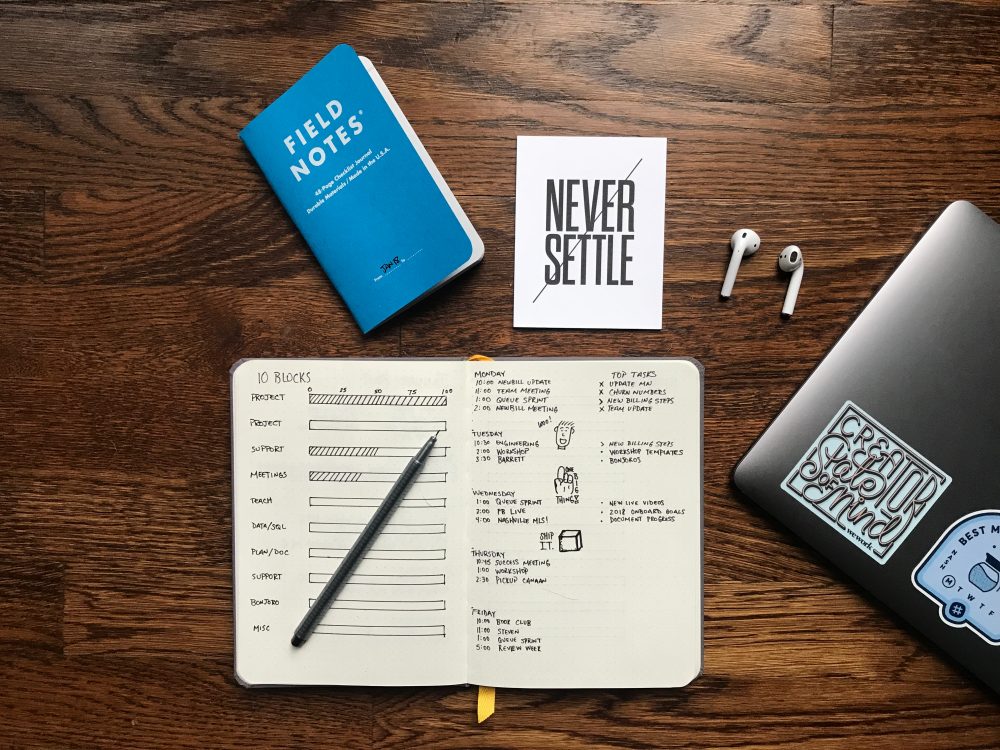I picked up the habit of writing “To-Do” lists when I worked for my father-in-law, as a construction manager. The boss actually insisted on it. These lists were important to my job because it helped me organized my activities and maintain my focus on what I needed to do to move projects along.
I haven’t changed my mind about their importance. However, to-do lists often become ridiculously long. Sometimes lists are so lengthy, it becomes impossible to complete all of the tasks on them. With this in mind, how can you make your list more manageable? Here are some suggestions for writing better to-do lists and accomplishing more:
- Create your list at the end of the workday or the night before. That way, you can hit the ground running when your workday starts.
- Keep your work to-do separate from your personal list. By doing this, personal tasks do not distract from your business day.
- Organize your list into categories. For example, you should have a separate section on your list for phone calls. Next to each call, write down the phone number, the purpose of the call and key points to discuss. That way, you won’t waste time looking for numbers and you will better keep conversations on track. You should also have a category for those tasks which are critical to a key project.
- Value your time. Allot a certain amount of time to each task. This allows you to estimate what you can reasonably accomplish in your work day. For example, Mark McCormack, who wroteWhat They Don’t Teach You in Harvard Business School,said that he tried to limit his calls to five minutes. By keeping to that schedule, he could accomplish more is less time. In reality, tasks usually take longer that you plan on for a number of reasons. With that in mind, always schedule a little more time than you think is necessary.
What They Don’t Teach You at Harvard Business School: Notes from a Street-smart Executive
by Mark H. McCormack
- Prioritize your list based on importance and urgency. By putting the most important tasks at the top of your list, you won’t waste your time on insignificant tasks. In business, what should be on the top of your list are those activities that you can turn into cash.
- After prioritizing your list, do the most important and the most difficult tasks first at the beginning of the day, when you have the most energy and your mind is sharpest. Leave the easy tasks for later in the day.
- The tasks, which you should assign highest priority, should be those which best align with your business goals. For salespeople, your tasks might align with an annual sales goal. If these activities are not high priority for you, you probably won’t achieve your goals.
- Be reasonable. Keep your daily to-do list as short as possible. Only include those tasks on your list that you absolutely, positively must accomplish for that day.Otherwise, the list can become unmanageable and overwhelming.
- If you are responsible for production, your to-do list is no substitute for a job ticket. For jobs in-house you might create a separate grouping for these projects, listing what you need to do that day to keep the jobs on schedule. If you are working on a large project, break it down to smaller “bite size” tasks that you can easily complete during your workday.
- At the end of the day review your to-do list. Evaluate those activities that you did not work on or complete, and decide whether they are worth moving onto tomorrow’s list. If you keep moving a task from one day to another, is it really important enough for you to do at all. Another lesson that I learned from my father-in-law is in reviewing the day is to ask yourself: what got done; what didn’t get done; and if didn’t get done,why didn’t it get done. This is great advice if you are managing big projects or managing people.
- Although I have used different programs to compile lists, what is usually most effective for me is a handwritten list. A simple list is easy to carry around and when a task is finished, it is easy to cross off the list. When you can cross off all of your daily tasks, that can give you a great feeling of accomplishment. While written lists worked best for me, you should adopt a system that fits best for your way of doing business.
If you are not in the habit of making daily to-do list, it is time to start. Otherwise your time is often spent responding to what other people want you to do, instead of doing those things that you should do and that pay off in better results.



